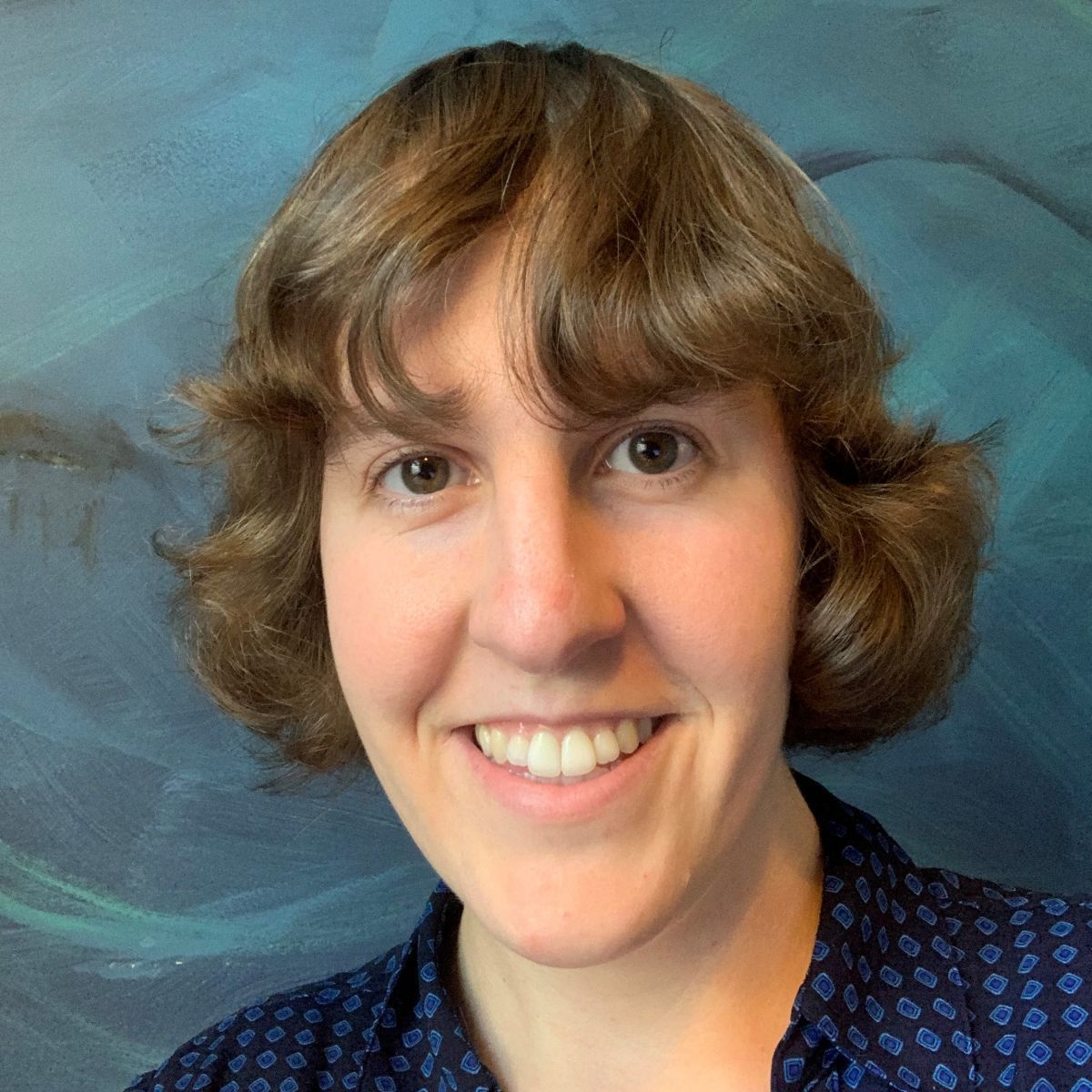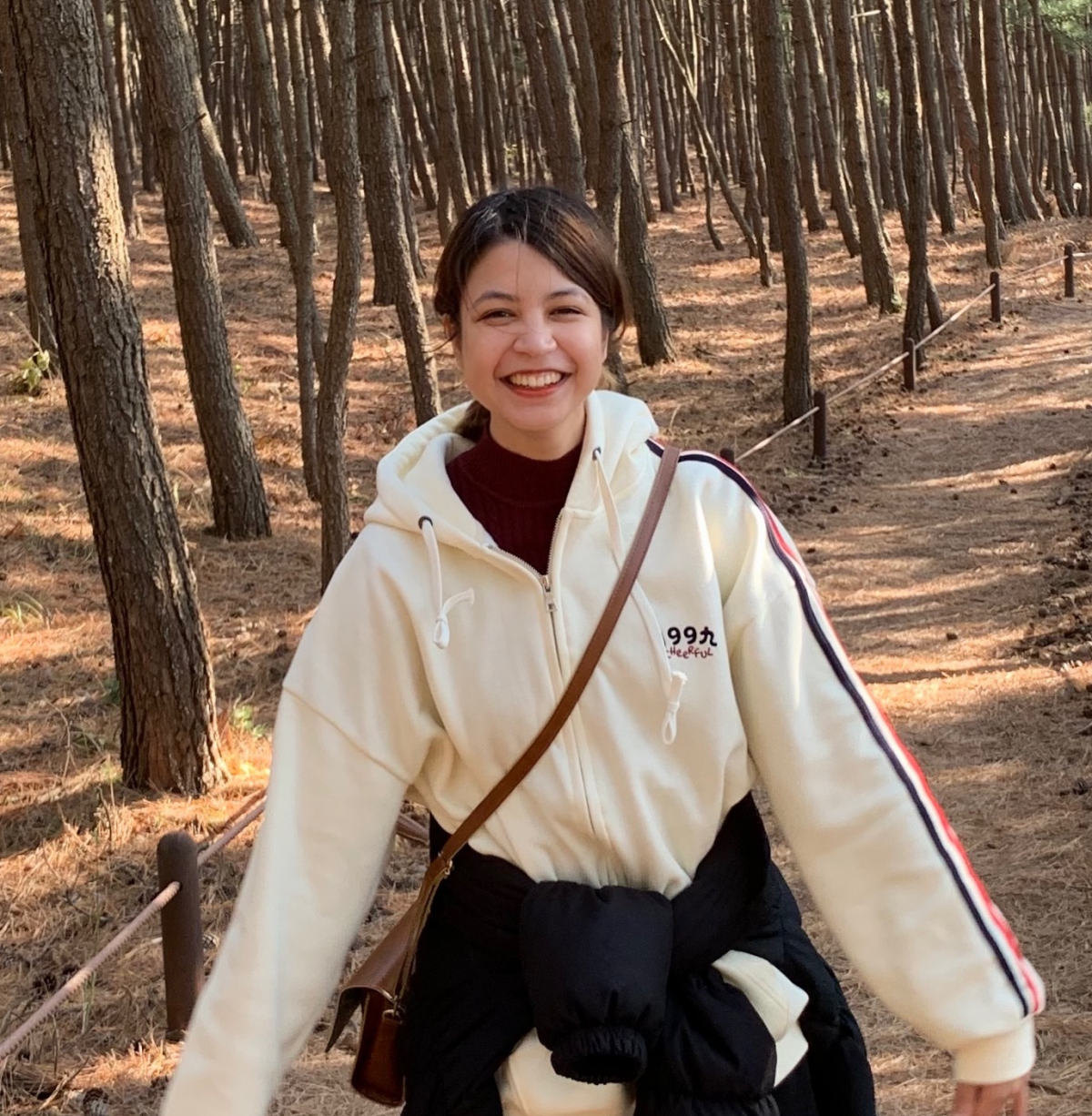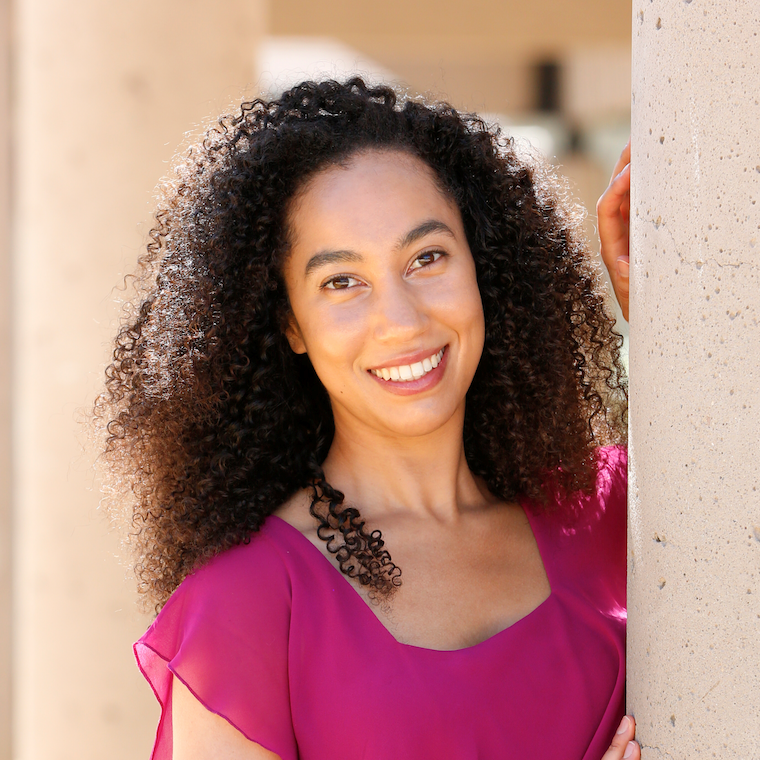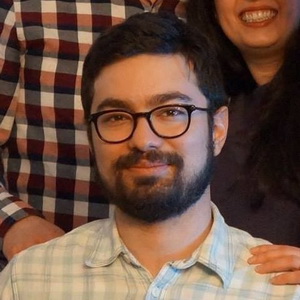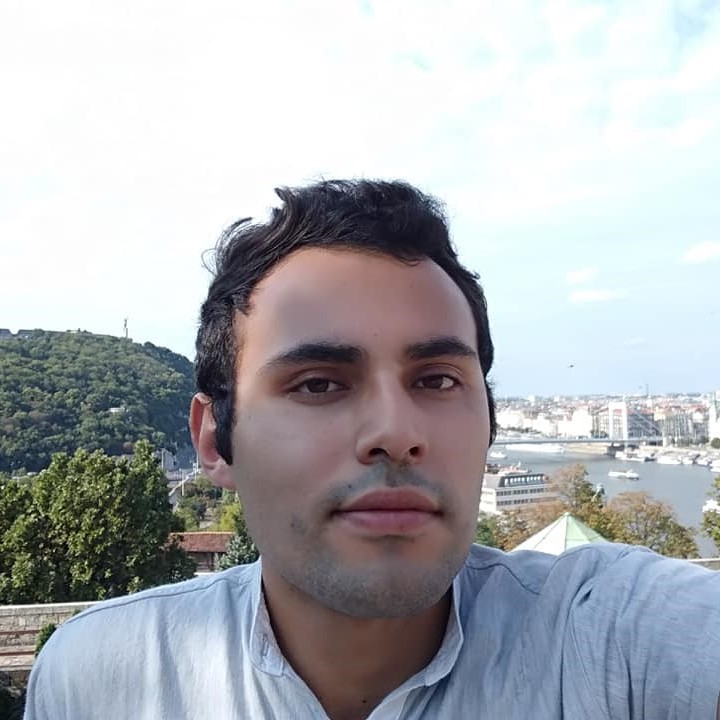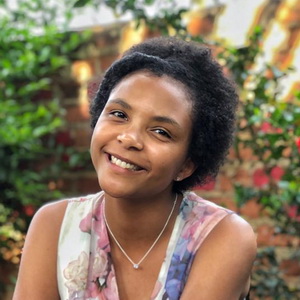Feuer, Flut und Wut: Für das Klima abstimmen
Ich gehöre zu der ersten Generation, die in der Klimakrise aufgewachsen ist. Meine umweltpolitische Reise begann mit Feuer.
United States, Northern America
Eine Geschichte von Melaina Dyck. Übersetzt von Veronica Burgstaller
Veröffentlicht am November 29, 2020.
Diese Geschichte ist auch verfügbar in 





Wenn ich an Präsidentschaftswahlen denke, denke ich an Asche.
Am 9. November 2016 wachte ich benommen auf, erschöpft von den Verwüstungen der vorangegangenen Nacht.[1] Das erste, was ich wahrnahm, war der beißende Geruch von Rauch. Ich trat aus meiner winzigen, ebenerdigen Wohnung in Columbia, South Carolina, und wurde von einer aschigen Dunst ummantelt. Die Luft war dick mit Flocken von verbrannten Waldpartikeln aus dem westlichen Teil des Staates. Durch diese Luft fuhren hupenden Pick-up-Trucks, mit feierlichen "Make America great again"-Flaggen, die von ihren Stoßstangen flatterten.
Was für ein kosmischer Scherz ist das? Ich dachte. Waldbrände sollten in South Carolina nicht vorkommen.[2]
Der Herbst 2016 war das vorletzte Semester meines Bachelor-Studiums der Umweltwissenschaften. Ich war Studentin der Klimakrise und ihrer politischen Verstrickungen. Hurrikans brachten massive Überschwemmungen nach Columbia in den vergangenen vier Jahren, in denen ich dort lebte, zusammen mit Evakuierten von der Küste weiter östlich. Während generationenübergreifende Nachbarschaften von den Fluten aufgelöst wurden und Familien ihren vererbten Besitz verloren,[3] weigerten sich die Politiker in der Landeshauptstadt Columbia, den Begriff "Meeresspiegelanstieg" auch nur zu benutzen.[4] Nun brannte der Westen des Staates, während der Osten überflutet wurde, und Columbia füllte sich mit improvisierten Paraden, die die Wahl eines Klimaleugners feierten. Meine Verzweiflung und Enttäuschung entfachten eine stetige Wut, die seit diesem Tag brennt.
Passenderweise begann meine Reise als Umweltschützer mit dem Feuer.
Als Heranwachsender verbrachte ich die Sommer in British Columbia (BC), Kanada. Als ich acht Jahre alt war, verwüsteten Bergkiefernkäfer die Wälder von BC und hinterließen Schwaden von toten Bäumen. Diese trockenen Wälder waren Zunderbüchsen und in jenem Sommer wüteten Brände in der Region. Eines Nachts nahmen mich mein Vater und mein Onkel mit auf einen Hügel, und ich erblickte auf der anderen der Seeufer eine Fläche von wogende Flammen die bis zum Horizont reichten. Das machte mir Angst. Ich fragte mich auch, was man gegen diese Käfer tun könnte.
In der Highschool lernte ich, dass bis 2020 Hurrikane zahlreicher, massiver und nasser sein würden, während Waldbrände das ganze Jahr über brannten - wenn wir nichts unternahmen. Aber 2020 war zehn Jahre entfernt, und die Erwachsenen würden etwas tun, da war ich mir sicher.
In der Wahlnacht 2020 saß ich draußen vor einem Lagerfeuer, das meinem Freund und mir an einem kühlen Novemberabend Wärme spendete. Wir teilten unsere nervöse Vorfreude im Freien, denn angesichts der steigenden COVID-19-Fälle war es nicht sicher, mit Freunden drinnen zu sein. Wir überprüften ständig die Wahlkarte und hofften, dass mehr Staaten blau für die Demokraten und weniger rot für die Republikaner werden würden. Aber als das Lagerfeuer erlosch, wurde die Karte immer röter.
Der 4. November 2020 dämmerte klar, aber die Ungewissheit hing über allem wie die Asche von vier Jahren zuvor. In den nächsten Tagen wurden die Stimmen ausgezählt und die Karte wurde gerade noch blau genug. Im Jahr 2020 wählten die US-Wähler zum ersten Mal einen Kandidaten mit einem robusten Klimaplan.[5]
Ich gehöre zu der ersten Generation, die in der Klimakrise aufgewachsen ist. Für mich geht es bei den Wahlen um Brand und Asche, Hurrikane und Überschwemmungen. Meine Wut entzündet sich an den politischen Versäumnissen, die uns an diesen Punkt der Krise gebracht haben. Ich traue den Politikern nicht zu, dass sie ihre Pläne einhalten. Dennoch, als die Wahl 2020 endlich ausgerufen wurde, spürte ich einen Hauch von Hoffnung in der Novemberbrise. Auch das facht die Flamme an. Es gibt Arbeit zu tun.
Fußnoten
[1] Am 8. November 2016 wurde Donald Trump zum Präsidenten der Vereinigten Staaten gewählt.
[2] Unten auf der Seite befinden sich Informationen über das größte Waldfeuer in der Geschichte South Carolinas, das am Tag nach der Wahl 2016 brannte:
[3] Emanzipation bezieht sich auf das Ende der Sklaverei in den Vereinigten Staaten, das durch die Emanzipationsproklamation am 22. September 1862 verkündet wurde.
[4] Der Anstieg des Meeresspiegels überflutet viele Küstengemeinden in South Carolina. Zu den ersten und am härtesten Betroffenen gehören Stadtteile mit überwiegender schwarzamerikanischer Bevölkerung, darunter auch solche, deren Familien seit dem Ende der Sklaverei Eigentum vererbt haben. Einige dieser Grundstücke fallen unter das sogenannte "Erbeigentum", bei dem Land über Generationen hinweg ohne ein gesetzliches Testament vererbt wurde. Erbeigentum ist oft von staatlicher Unterstützung ausgeschlossen, was zum Verlust von Wohlstand, aber auch von Gemeinschaftsbeziehungen führt. Für weitere Informationen siehe: Heir's Property Retention Coalition; Southern Environmental Law Center Broken Ground Podcast, insbesondere die Episode 'Uprooted'; Charleston Post & Courier Sea Level Rise and Land Slipping Away.
[5] Für weitere Details empfehle ich Bidens Klimaplan zu lesen oder und die Folge - 'How 2020 Became a climate election' des “How to Save a Planet”-Podcasts zu hören.
Was macht diese Geschichte mit dir?
Follow-up
Do you have any questions after reading this story? Do you want to follow-up on what you've just read? Get in touch with our team to learn more! Send an email to [email protected].
Unterhalte Dich über diese Geschichte
Please enable cookies to view the comments powered by Disqus.
Subscribe
Melde Dich an für unseren monatlichen Newsletter und bleibe up-to-date mit neuen Geschichten auf Correspondents of the World.
Mehr Geschichten auf Deutsch
Tags
Erkunde andere Themen
Mach mit
At Correspondents of the World, we want to contribute to a better understanding of one another in a world that seems to get smaller by the day - but somehow neglects to bring people closer together as well. We think that one of the most frequent reasons for misunderstanding and unnecessarily heated debates is that we don't really understand how each of us is affected differently by global issues.
Unser Ziel ist es, dies zu verbessern - und zwar mit jeder Geschichte, die wir teilen.
Community Weltweit
Correspondents of the World is not just this website, but also a great community of people from all over the world. While face-to-face meetings are difficult at the moment, our Facebook Community Group is THE place to be to meet other people invested in Correspondents of the World. We are currently running a series of online-tea talks to get to know each other better.











